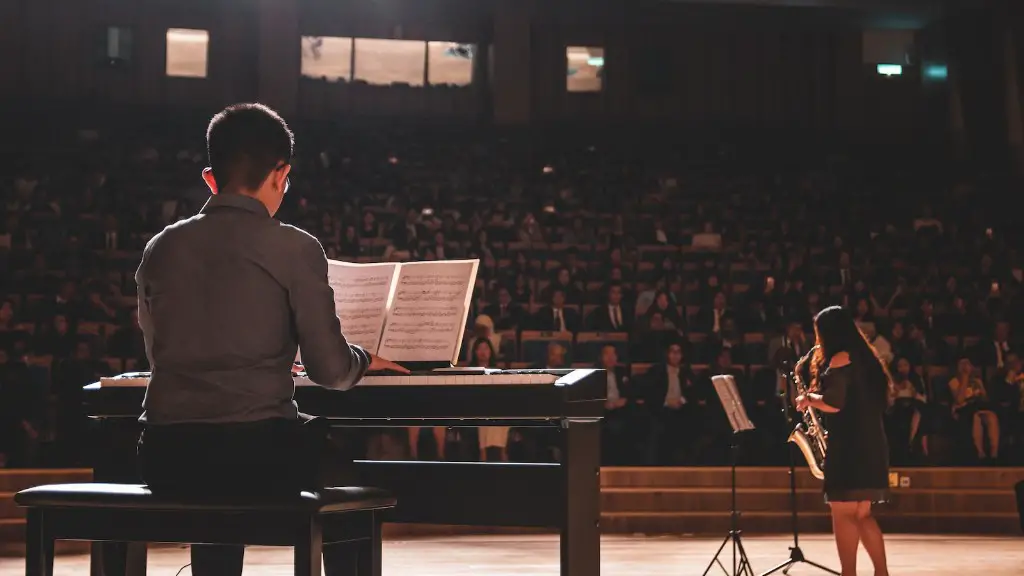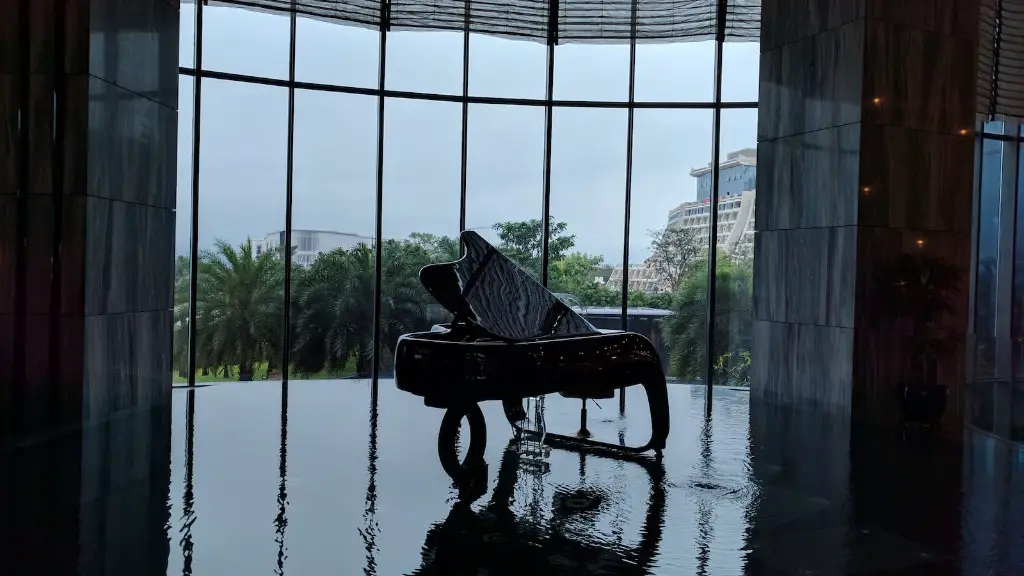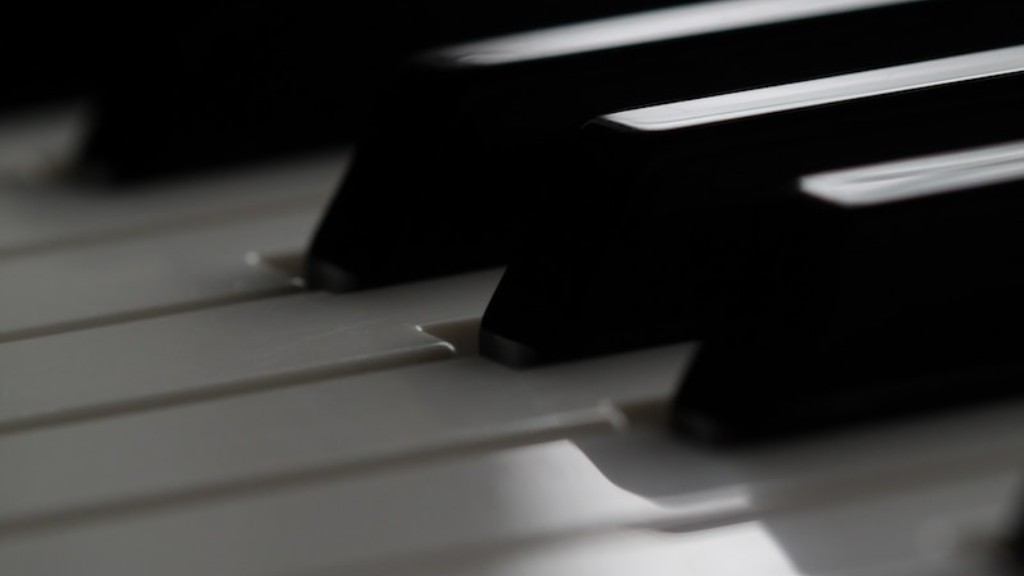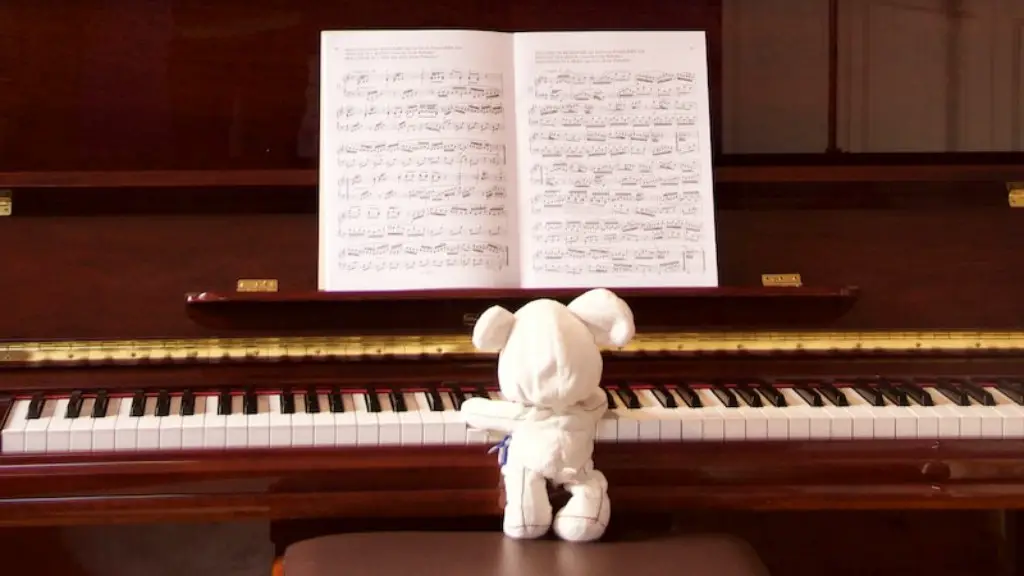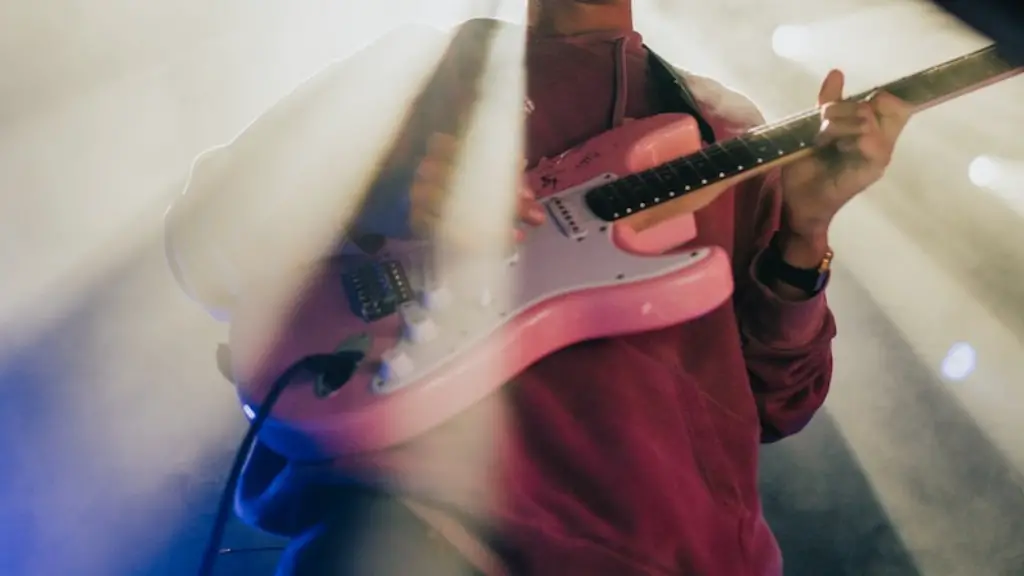Learning to play the piano is a rewarding experience, and it’s never too late to start. Teaching yourself how to play the piano is possible, but it can be difficult.
The first step is to find a good-quality beginner’s book or online course that can teach you the basics. A good resource will provide helpful diagrams, audio recordings, and exercises that are geared towards helping you understand the fundamentals of playing the instrument.
Once you have a basic understanding of the instrument, you can start to practice pieces from sheet music or popular songs. You should also learn some scales and arpeggios as these are important for developing your finger dexterity and accuracy.
You will need access to a piano or keyboard in order to practice, so if you don’t have one at home then consider joining a music school or finding an online teacher who can guide you. They can also help with more advanced techniques such as improvisation and composition.
By taking the time to learn the basics properly and practicing regularly, you’ll be able to teach yourself how to play piano over time. With dedication and patience, you’ll be able to create beautiful music in no time!
Tips for Teaching Yourself Piano
Learning to play the piano can be an exciting and rewarding experience. It can be especially rewarding if you are able to teach yourself how to play. While it may not be easy, it is definitely possible with a bit of hard work and dedication. Here are some tips to help you in your journey of teaching yourself the piano:
1. Start with the basics: Before diving into complicated pieces, make sure you have a good understanding of the basics such as notes, rhythm, scales, chords and more. To learn these basics, consider enrolling in a beginner course or purchasing an instructional book or video series.
2. Practice regularly: To truly learn how to play the piano, it is important to practice regularly. Aim for at least 30 minutes every day or two days depending on your schedule. As your skills improve, gradually increase your practice time.
3. Experiment and explore: Don’t be afraid to experiment with different sounds and chords so that you can get a better understanding of how music works and discover your own style of playing. Learning from other musicians is also a great way to expand your musical knowledge.
4. Record yourself: Recording yourself playing allows you to review what you have learned and identify areas that need improvement so that you can focus on those areas during your next practice session.
5. Set goals: Setting realistic goals that are achievable will help keep you motivated and focused on learning the piano. Celebrate each milestone as it will help keep you motivated.
With these tips in mind, anyone can teach themselves how to play the piano! With enough dedication and practice, soon enough you will be able to confidently play any piece of music with ease!
Learning to Play the Piano
Learning to play the piano can be a rewarding experience, and it is possible to teach yourself how to play. There are many resources available that can help make learning to play the piano easier and more fun. Online tutorials, books, and videos are all great ways to get started. It is also important to practice regularly, as this will help you develop the skills necessary to become a proficient piano player. You may also want to consider taking lessons from a professional instructor if you want to accelerate your learning or if you need guidance along the way. No matter what method you choose, with patience and dedication you can learn how to play the piano.
If you are just starting out on your journey of learning how to play the piano, it is important to find resources that will best suit your needs. Online tutorials can be great for those who have limited time or just want a refresher on certain topics. Books offer more in-depth instructions and explanations of concepts, while videos provide visual demonstrations of techniques and exercises. For those who need more personalized instruction, taking lessons from an experienced teacher is highly recommended. Whichever method you choose, it is important that you dedicate yourself to regularly practicing so that your skills can grow.
Learning how to play the piano can be an exciting experience with many rewards along the way. With diligent practice and dedication, anyone can learn how to play this beautiful instrument!
Deciding if Teaching Yourself is Right for You
Learning how to play the piano can be a rewarding and fulfilling experience. But is it right for you to teach yourself? That depends on several factors, including your dedication, level of motivation, and access to resources. If you are highly motivated and willing to take the time to learn, teaching yourself may be a great option.
You will need to have access to a piano or keyboard in order to practice regularly. If you are able to purchase or rent an instrument, great! Otherwise, consider borrowing one from a friend or family member. Additionally, look into online resources such as virtual lessons, instructional videos and tutorials. These can help provide structure and guidance as you learn how to play the piano on your own.
It’s important that you are aware of the challenges ahead when deciding if teaching yourself is right for you. Having limited access to feedback from a mentor or instructor can make it difficult for you to progress at times. To ensure that your skills are developing properly, consider taking periodic assessments and having friends or family members listen to your progress every few weeks. Doing this will help ensure that your technique is improving as you continue learning how to play the piano.
Overall, teaching yourself how to play the piano can be an enjoyable journey if approached with the right attitude and tools. With dedication and perseverance, anyone can become proficient in this timeless instrument!
Keys to Successfully Learning Piano On Your Own
Learning piano on your own can be a daunting task, but with the right approach it can be achieved. To become a successful self-taught pianist there are a few steps to consider. Firstly, find the right learning material that is tailored to your level and interests. It could be a method book, online course or tutorial videos. Secondly, practice regularly and set realistic goals for yourself. This will help you stay motivated and make progress in your learning process. Thirdly, focus on technique and theory; this will help you understand how music works and how to create beautiful sounds with the piano. Finally, keep an open mind; experiment with different styles of music, try improvisation and even compose your own pieces! With dedication and hard work it is possible to become an amazing pianist even if you are teaching yourself.
Overcoming the Challenges of Self-Teaching
Learning an instrument can be a daunting task, especially when it comes to teaching yourself. However, with the right attitude and dedication, you can learn how to play the piano without relying on a teacher. It will take time and practice to be able to master any instrument, but it is possible.
The first step in learning the piano is to build a strong foundation of music theory and technique. You must become familiar with scales, chords, and progressions so you have a better understanding of what you are playing. You should also research different fingering techniques that will help you move around the keyboard efficiently. Having an understanding of music theory is essential for playing any instrument.
Another obstacle in self-teaching is finding resources that teach you how to play specific pieces or songs. Fortunately, there are many online tutorials available to help guide you through learning a song or piece of music. Additionally, if you are familiar with sheet music notation, there are also plenty of free sheet music available online for practice.
Finally, don’t forget that some of the best learning occurs when we practice regularly and consistently. Make sure to set aside time each day to practice your playing so your skills can grow quickly and efficiently over time.
With hard work and dedication, it is possible to teach yourself how to play the piano without relying on a teacher or instructor. Building a strong foundation in music theory will provide you with a strong base for your playing abilities while also helping you understand what notes go together in a song or piece of music. Furthermore, utilize internet resources such as tutorials and sheet music notation as supplemental materials for your self-learning journey!
Establishing Practice Goals and Schedules
Learning how to play the piano is an exciting endeavor and a great way to express yourself musically. With a little bit of dedication, discipline, and practice, you can teach yourself how to play the piano. It is important to set goals and create a practice schedule that works for you. This will provide structure and help you stay motivated on your journey of learning.
Create realistic goals that are challenging but achievable. This could include learning one piece of music in a certain amount of time or mastering a specific technique. When you reach one goal, set another one to continue improving your skills. As part of your practice schedule, plan in advance when and where you will practice. Aim for consistency; try to find the same time each day that works best for you and stick with it. You can also break up your practice session into smaller chunks if needed.
In addition to setting goals and creating a schedule for yourself, take regular breaks throughout your practice sessions to give your mind and hands some rest. Regular breaks will help you stay focused on the task at hand. Lastly, reward yourself when you complete each goal or reach milestones along the way – this will keep you motivated as you continue learning how to play the piano!
Wrap Up
It is possible to teach yourself how to play the piano. With dedication, determination, and practice, anyone can learn to play the piano. Learning the basics of music theory and understanding music notation is essential for playing the piano. With online tutorials, books, and other resources available, it can be easier than ever before to start playing your favorite songs. As you progress in your skills and technique, you may want to consider taking lessons from a qualified instructor who can provide feedback and guidance. Nevertheless, self-teaching is an excellent way to get started on your musical journey to learning the piano.
